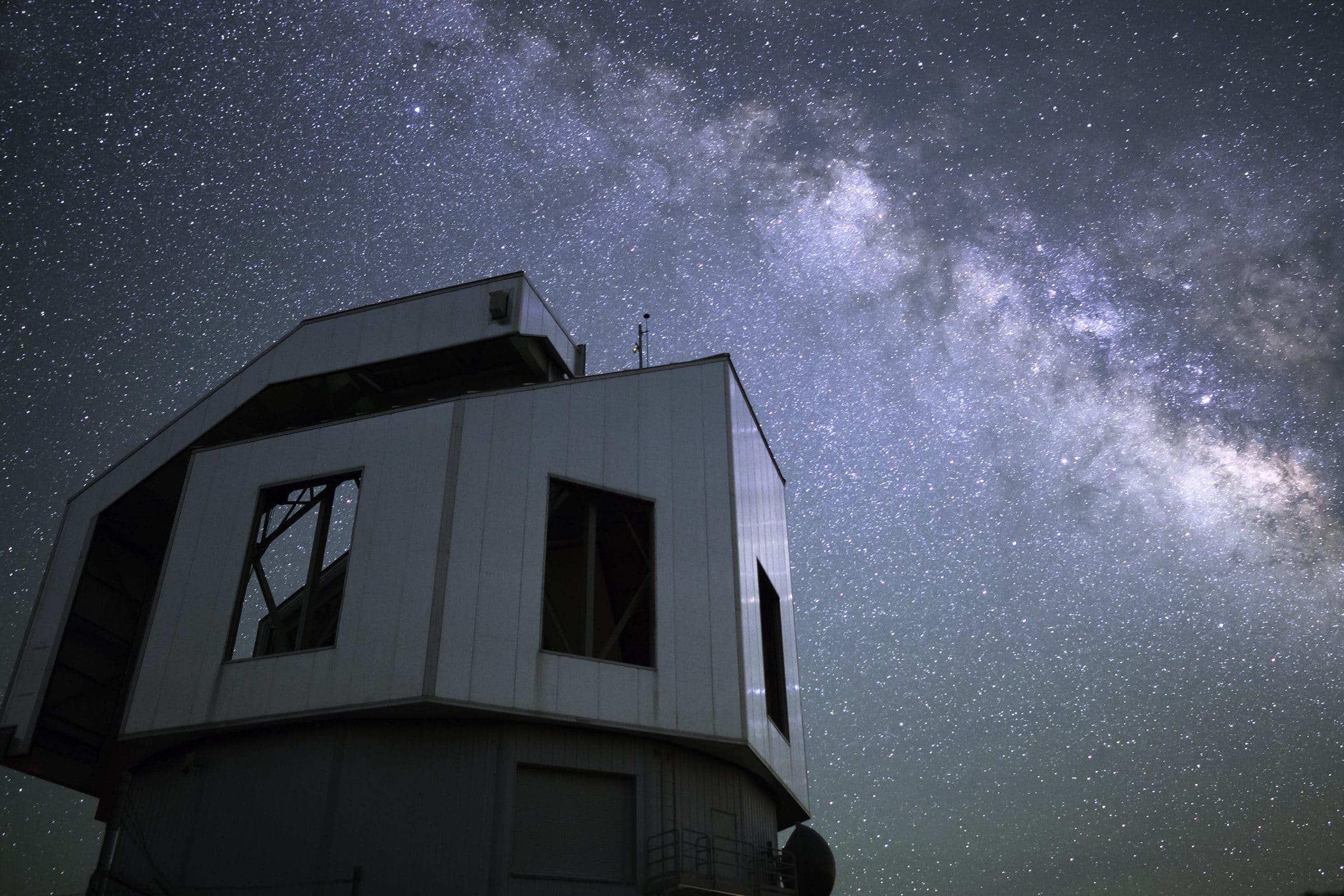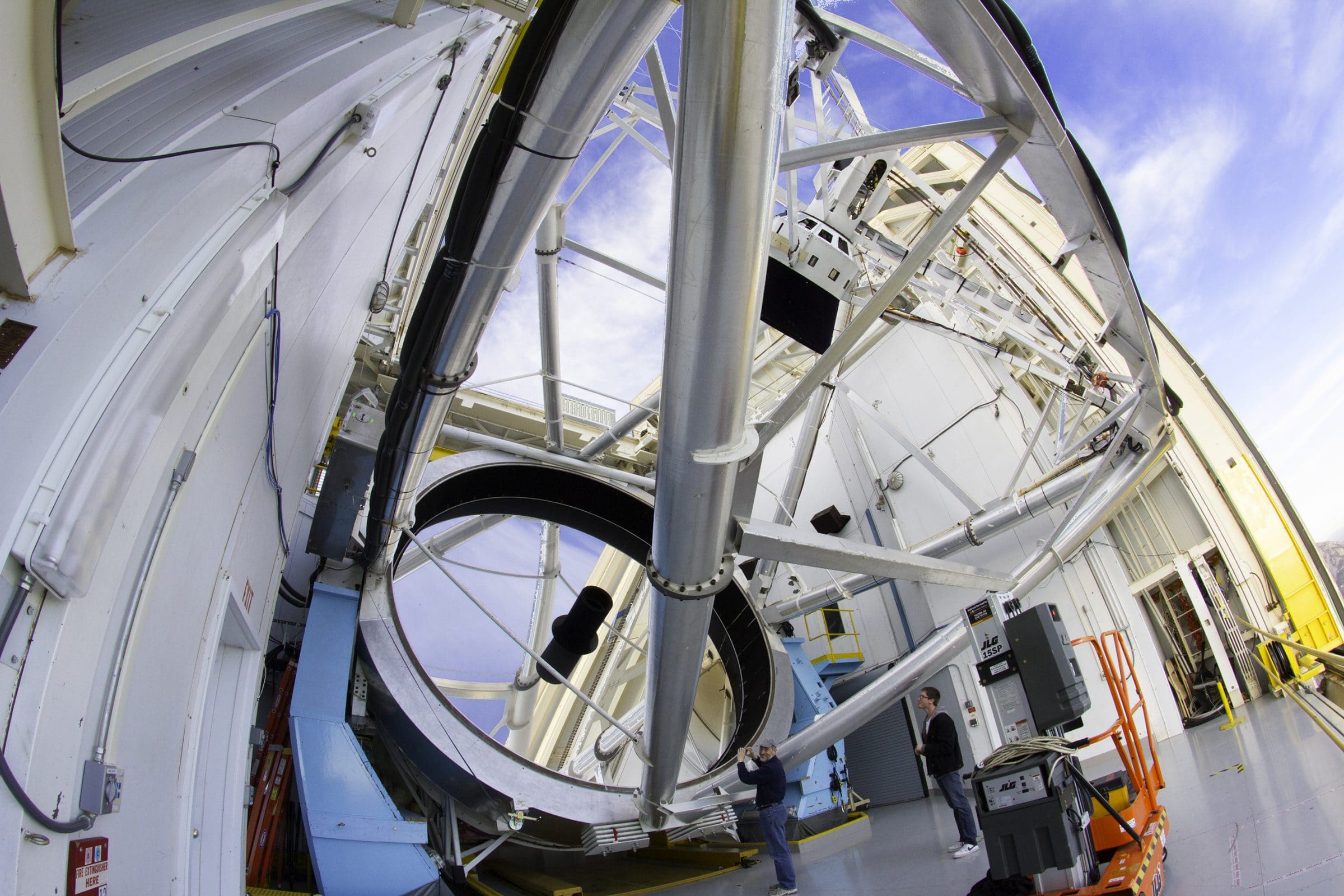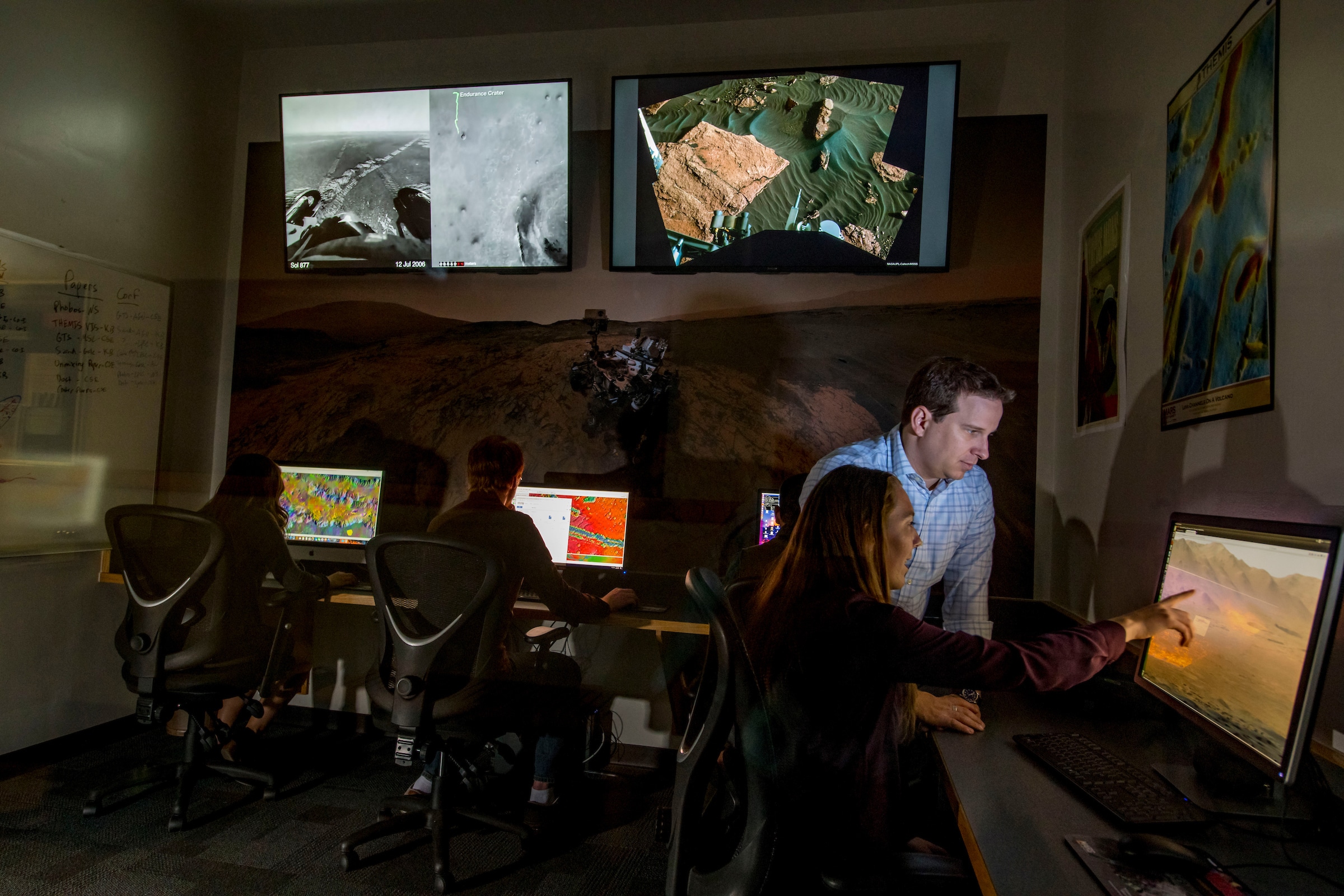PhD in Astronomy and Planetary Science
Current Opportunities!
Our PhD program is currently accepting applications! Each of the below faculty and affiliated partners are currently accepting new students. Some of them have specific projects they are recruiting for, if they do not have one listed please check out our people page to learn more about their general research focuses.
Christopher Edwards
Allie Rutledge
Haley Sapers
Jean-Francois Smekens
Chad Trujillo
Jennifer Hanley (Affiliate/Visiting; Lowell Observatory)
Kristin Bennett (USGS)
Diego Munoz – Recruiting graduate students to work on theoretical and computational planetary astrophysics.
Will Grundy (Adjunct; Lowell Observatory) – A combination of modeling and laboratory studies to investigate the geophysical processes enabled by low temperature subsurface volatile fluids on Pluto, Triton, and other far outer solar system bodies.
Current faculty expertise

Image Credit: Stephen Tegler
Current faculty members use ground-based and space-based telescopes to study small bodies in the Solar System and the formation and evolution of other planetary systems; spacecraft imagery to study planetary surfaces; and a state-of-the-art laboratory to study astrophysical ice analogs. We also carry out research in exoplanet science, astrochemistry, astroinformatics, astronomical instrumentation, and terrestrial analog studies throughout the southwestern United States and in Antarctica. NAU faculty members have close research collaborations with scientists at local institutions including Lowell Observatory, the United States Geological Survey (USGS) Astrogeology Science Center, and the United States Naval Observatory, Flagstaff Station.
Superb access to large telescopes

Image Credit: Stephen Tegler
Faculty members and their PhD students have full competitive access to facilities run by the University of Arizona including the 2 x 8.4-meter Large Binocular Telescope, the 6.5-meter Magellan Telescopes, the 6.5-meter MMT telescope, the2.3-meter Bok telescope, the 1.8-meter Vatican Advanced Technology Telescope, and the 1.5-meter Kuiper Telescope. In addition, NAU researchers have access to the 4.3-meter Discovery Channel Telescope, 1.8-meter Perkins telescope, and 0.8-meter NURO telescope through partnerships with Lowell Observatory. Faculty and students also have access to the 0.5-meter Lutz telescope on the NAU campus.
Cutting edge research on planetary surfaces
Faculty members and their students work with data obtained from landers and orbiters across the solar system, especially Mars.
NAU researchers have operational roles on active missions including the Mars Science Laboratory and analyze imaging, topographic, spectral and thermal data from a host of spacecraft based instruments in the solar system including the Mars Orbiter Laser Altimeter (MOLA), Thermal Emission Imaging System (THEMIS), Compact Reconnaissance Imaging Spectrometer for Mars (CRISM), Context Camera (CTX), and High Resolution Imaging Science Experiment (HiRISE). Active research areas in the department include the compositional and thermophysical properties of planetary surfaces from orbital and landed assets that provide insights into past and present day processes, the analysis of impact craters to constrain the distribution of subsurface volatiles and age-date planetary surfaces, and the role of climate change on Mars. NAU researchers are also developing spaceflight hardware as well as testing new prototype instruments for space-based applications.

Curriculum
PhD students in the program will build skills and knowledge through formal class work and an original research project.
Students will take eight classes during their first two years in the program. Four of these core classes will focus on the development of essential skills PhD astronomers and planetary scientists need upon entering the workforce in an academic or industrial setting (instrument design and fabrication, optical design, computational physics, big data, and techniques of observational astronomy). Four classes will be electives that focus on advanced topics in astronomy and planetary science that students need for a solid foundation upon which to build their own postdoctoral research (formation and evolution of solar systems, atmospheres, interiors, and surfaces of planetary bodies, astro-chemistry, exoplanet science, and special topics). Students will perform their own original research, write a dissertation, and make an oral, public presentation of their results. In the original research component, students will learn how to collect and analyze data, write up their results, and communicate their results to others in a manner consistent with professional standards in the astronomical and planetary science communities.
Current NAU Course Catalog information about this program.
Additional information
Financial support
Students in the program typically receive full-tuition waivers, a stipend as either a graduate teaching assistant or a graduate research assistant, and health insurance.
Graduate students are also eligible for Professional Development grants. The grants program provides financial support to cover expenses for graduate students attending (in-person or digitally) conferences, workshops, trainings, or any other research-related events. Requests for research-related supplies costs will also be considered.
Admission requirements and procedures
Prospective students apply through the NAU Office of Graduate and Professional Studies admissions website. Please be sure to select “Doctoral Degree” and “Astronomy and Planetary Science.” Application materials are submitted electronically, and must include:
- A statement of interest (maximum two pages);
- A scientific/technical writing sample (e.g., a laboratory report, class paper, or scientific-style publication);
- Contact information for three references;
- A current Curriculum Vitae.
Using the submitted materials, applicants are evaluated across all of: GPA, prior research experience, research interests, scientific writing, professional references, and experience in education and outreach. Critically, the statement of interest should address how an applicant’s research background complements existing scientific efforts in the department and/or how an applicant’s research interests align with core departmental research areas. General and subject GRE scores are not required for application and are not considered in the admissions process
Admission fee waivers are available for students with financial hardship. Please email Astronomy.Grad@nau.edu to receive an admission fee waiver code.
Further information
Please address questions about the PhD program to Astronomy.Grad@nau.edu or phone us at (928) 523-2661.
Contact the Astronomy graduate student coordinator
Grad-Student Handbook (V1.1-1 - September, 2023)
